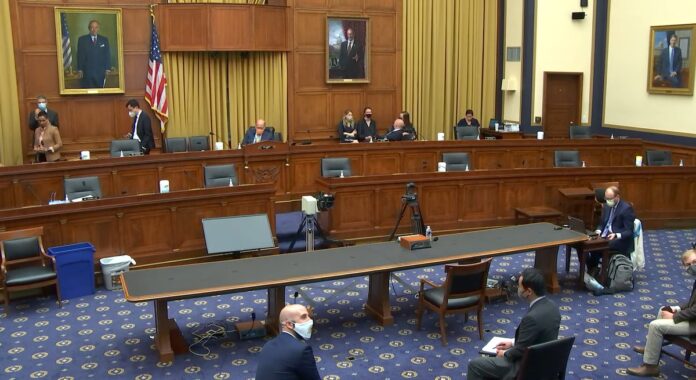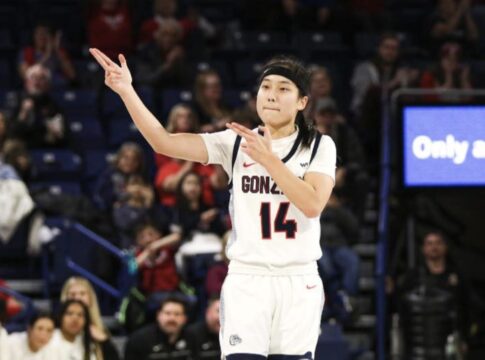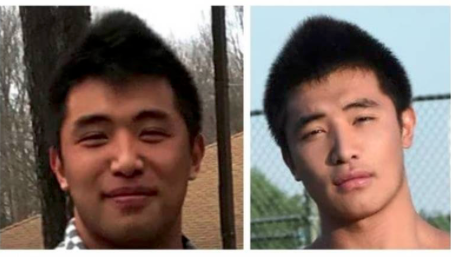By Louis Chan, AsAmNews National Correspondent and Akemi Tamanaha
The first Congressional hearing on anti-Asian hate since 1987 is underway this morning before the House Judiciary Committee.
Rep Steve Cohen (D-TN) opened the hearing by assuring Asian Americans that Congress will protect the community.
“To all Asian Americans who understandably feel hurt, Congress sees you and hears you and will do everything to protect you,” he assured.
Cohen blasted the use of rhetoric such as the “China virus” and the “kung flu” and cited the long history of discrimination against Asian Americans including the 1882 Chinese Exclusion Act and the incarceration of Japanese Americans during World War II.
LATEST STORIES
Shortly after, Rep Chip Roy (R-TX), issued opening remarks for the minority party and basically dismissed Cohen’s concerns.
“To hide the origin of this virus is deserving of condemnation,” he said. “I’m not going to be ashamed to say I’m opposed to the Chicoms-the Chinese communist party. We shouldn’t be worried about some committee in Congress policing our free speech.”
New York Rep Jerry Nadler followed.
“Words have power. What we say matters. How we treat each others, matters. The conversation we’re having today is long overdue and it’s important that Congress shines a light on this issue,” he said.
AAPI members of Congress also shared their experiences with anti-Asian racism and offered potential solutions. Rep. Doris Matsui (D-CA) shared her family’s experience with anti-Asian racism. Rep. Matsui’s family was wrongfully incarcerated during WWII because they were Japanese Americans.
Several AAPI Congress members, including AAPI Republican Congress members, condemned the use of racist rhetoric when discussing the. They felt in unfairly and illogically blamed Asian Americans for the pandemic.
“No American of any race is responsible for the pandemic,” Rep. Young Kim (R-CA) said. “The virus does not discriminate. It affects everyone.”
Rep. Judy Chu expressed her dismay at the tragic shooting in Atlanta but noted that many Asian Americans had been sounding “the alarm bells a year ago” when the racist COVID-19 rhetoric began.
Rep. Tammy Duckworth (D-IL) and Rep. Grace Meng (D-NY) both discussed pieces of legislation that could offer potential solutions. Rep. Duckworth introduced a “No hate” bill. Rep. Meng discussed the bill she previously introduced which aims to tackle the rise in hate and discrimination against AAPIs during the pandemic.
Witnesses also discussed the underlying causes of anti-Asian racism. John C. Yang, President of Asian Americans Advancing Justice noted that that the model minority myth and the perpetual foreigner stereotype both contribute to the racism and discrimination Asian Americans face.
The perpetual foreigner stereotype labels AAPIs as the “other,” a group that will never be fully embraced as American. The model minority myth suggests that AAPIs have been rewarded with economic success for working hard and keeping their heads down. The myth is not reality.
Yang says the model minority myth erases AAPI work in civil rights activism and downplays the many social/economic issues AAPIs face.
Professor Erika Lee and Professor Hiroshi Motomura also gave historical context for the racism AAPIs face today. Motomura outlined the role immigration laws preventing AAPIs from immigrating to America, like the Chinese Exclusion act, played in facilitating anti-Asian sentiment throughout the country.
Professor Lee emphasized in her testimony that the racism AAPIs face is not just occurring because of the pandemic. Anti-asian violence, she said, can be traced back to 1871 when 17 Chinese Americans were lynched by a mob.
After hearing from all the witnesses, Rep. Cohen turned the floor over for questions. He asked Lee whether there was empirical evidence that biased, racist rhetoric being used by leaders can drive an increase in hate crimes.
Lee answered, “Yes.”
She gave several historical examples. One example she discussed was how the rhetoric from US leadership about the Japanese during World War II led to instances of racism.
AsAmNews will continue to follow the hearing and will update the story throughout the day.
AsAmNews has Asian America in its heart. We’re an all-volunteer effort of dedicated staff and interns. Check out our new Instagram account. Go to our Twitter feed and Facebook page for more content. Please consider interning, joining our staff, or making a financial contribution to support us.










Honestly. I haven’t heard that slur that Rep. Chip Roy (TX-R) in DECADES. I don’t recall that phrase used during the Burns/Novick Vietnam War series. Maybe it was used in Dr. Stangelove or The Manchurian Candidate? Heck, even Vietnam veterans don’t normally employ that phrase—“Chi-Coms”—a shorthand for Chinese Communists—except in jest. WTF. This must be John Bircher stuff. Since Roy is credited with Ted Cruz’s govt shutdown stunt, then let’s go with that.